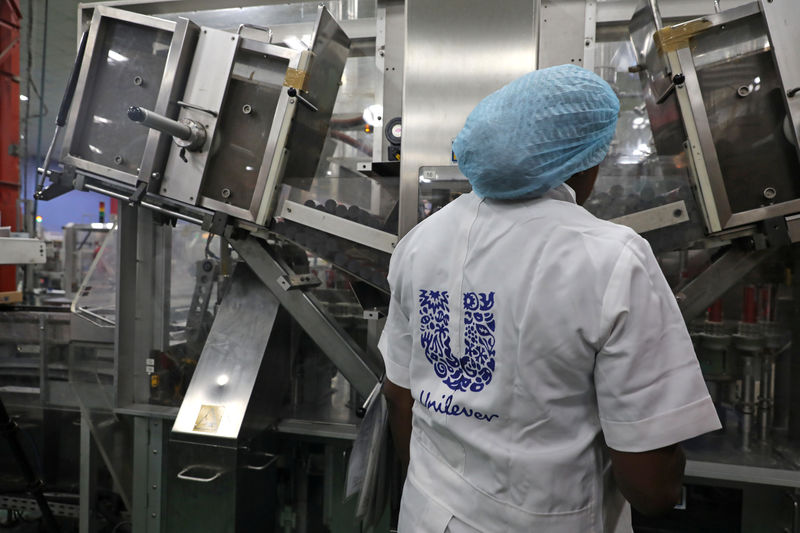Street Calls of the Week
Investing.com -- Unilever (LON:ULVR) on Thursday posted slightly better-than-expected first-quarter sales growth, but flat emerging market volumes, a sharp margin drop in the first half, and no new share buyback program point to continued investor caution despite a more optimistic second-half outlook.
The consumer goods company reported underlying sales growth of 3% for the first quarter of 2025, beating the company-compiled consensus of 2.8%.
The growth was led by price increases of 1.7%, which topped the 1.2% consensus. However, volume growth of 1.3% came in below expectations of 1.5%.
Category performance varied. Personal Care was the strongest performer, with 5.1% underlying sales growth, supported by high single-digit gains from Dove and balanced contributions from deodorants and skin cleansing products.
Beauty and Wellbeing rose 4.1%, but Prestige Beauty declined. Home Care delivered 0.9% growth, held back by weakness in Latin America, while Nutrition grew 1.6%, slowed by a tough comparison base in China.
Ice Cream rose 4%, with both in-home and out-of-home segments contributing. The company confirmed that the planned spin-off of its ice cream business is on schedule for the fourth quarter, with a capital markets day set for Sept. 9.
By geography, developed markets outpaced emerging markets. North America led with 6.2% sales growth, fueled by a 4% volume increase.
Europe followed with 3.2% growth, also volume-led. Emerging markets saw slower growth at 2%, with flat volumes.
Within that segment, Latin America was notably weak, with volumes down 3%. High interest rates prompted trade destocking across the region, with negative volume trends in Mexico and Argentina and a slight decline in Brazil. China declined by high single digits, and Indonesia fell 7%.
Unilever maintained its full-year guidance for underlying sales growth of 3% to 5% and a modest improvement in its underlying operating margin. Consensus puts the full-year margin at 18.7%, up slightly from 18.4% in 2024.
However, Citi projects a margin drop of about 80 basis points in the first half before a recovery in the second half.
Morgan Stanley (NYSE:MS) noted that consensus currently expects a 130-basis-point swing between halves, more than what the company anticipates.
Net finance costs are expected to be 3% of average net debt, and the underlying effective tax rate is projected at about 26%, both unchanged from last year.
Foreign exchange remains a significant risk. Citi estimates FX mark-to-market effects could reduce earnings per share by 4% to 6% this year.
The absence of a new share buyback program for the second quarter adds further pressure, and the ongoing uncertainty around the ice cream separation continues to hang over the stock in the near term.
Citi maintains a price target of £52, implying an 8% potential share price return. When factoring in a 3.8% expected dividend yield, the total return rises to 11.8%.
Morgan Stanley noted the stock is trading at about 18 times estimated 2025 earnings, in line with sector peers.
Both Citi and Morgan Stanley see a stronger second half for Unilever, driven by new product innovation and a rebound in margins. But for now, traders and investors will likely remain focused on the challenges ahead.
